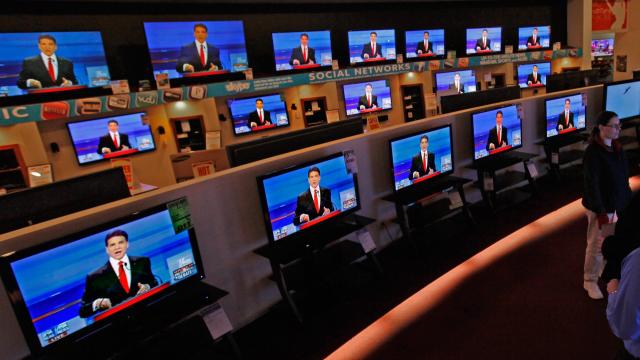In the years since the Cambridge Analytica scandal revealed how easily Facebook’s political ads could be weaponised by bad actors abroad, the social network has made some major overhauls that, in a perfect world, would keep a scandal like that from happening again. It rolled out an ever-growing library of the ads political parties were running on its platform, put up a new authorization process for anyone looking to run political ads in the U.S., and even let users opt out of seeing some of those ads if they chose.
These tools largely rely on advertisers being honest about disclosing their political ties, though — and those folks aren’t known for being honest. Facebook knows this, which is why it also uses a (mostly automated) review process to sniff out political ads that might be trying to skirt these rules.
Because these systems are, again, mostly automated, things go about as well as you’d expect: Stories have come out describing political groups openly skirting attempted ad crackdowns, and of regular mum-and-pop shops whose ads got slapped with a political label.
Now a joint study between researchers at New York University and KU Leuven in Belgium suggests that that this problem might be worse than we thought. The team investigated 189,000 political ads that ran on Facebook between July 2020 and February of this year, and found that Facebook had missed the mark a whopping 83%(!) of the time: 21% were regular ads for products that the platform had misidentified as being political, and the remaining 62% were outright political ads that Facebook just… missed.
If you’re familiar with Facebook’s less-than-stellar reputation when it comes to moderating content written in non-English languages, you won’t be surprised to hear that the lion’s share of these misses came from overseas.
In Malaysia, for example, the researchers found nearly half of the political ads they collected — 45% — weren’t labelled, despite being run by blatantly political advertisers or pages. Pages from Macedonia, Argentina, and Turkey, meanwhile, had about a quarter of their political ads fly under Facebook’s radar. The U.S., meanwhile, had something of the opposite problem: about 55% of the political ads that Facebook had flagged weren’t political at all; the examples compiled on the researchers’ site include ads for products like a Ford pickup and a baby cradle being branded as “political.”
Of course, there are some major misses in the U.S., too. The tracking both of these teams were doing coincided with Facebook’s temporary ban on political ads following last year’s presidential election. The researchers found more than 70,000 political ads running wild on the platform during this period, by pages that had openly run nothing but political ads before the ban began — the only thing that changed is that they weren’t labelled anymore. And Facebook just didn’t notice.
We’ve reached out to Facebook about the study and will update here when we hear back.
